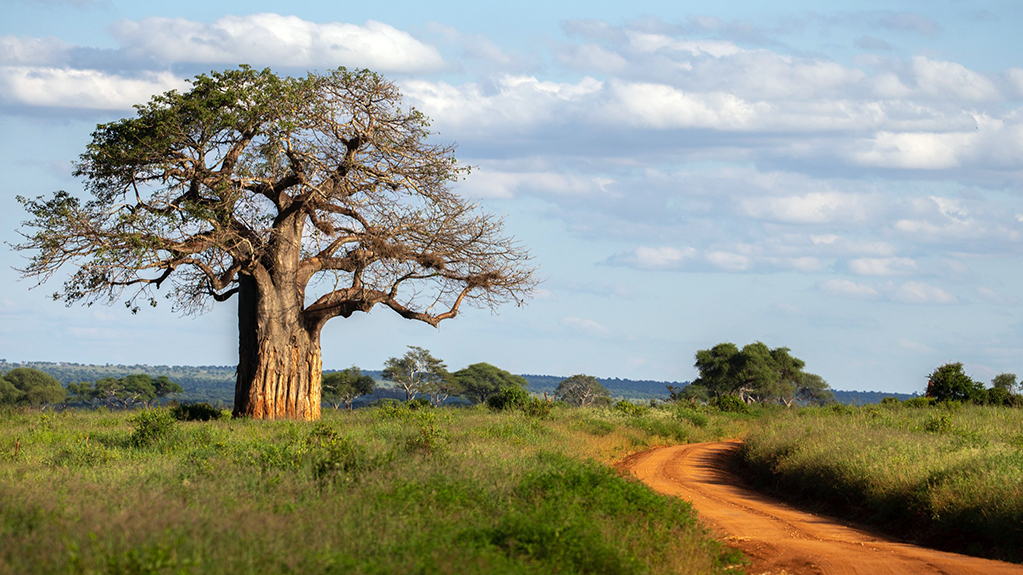All eight baobab trees purchased by Bidzina Ivanishvili, the honorary chairperson of the ruling Georgian Dream, in Kenya, wilted after being transplanted in the dendrological park at the request of the United National Movement party and non-governmental organizations. The administration of the dendrological park claims that due to false accusations, the giant trees were uprooted in completely inappropriate environmental conditions for almost two years.
News
The published statement asserts that the National Movement and its controlled media are fighting with "all their resources" against the dendrological park, which was opened in 2020 with funding from Bidzina Ivanishvili.
"They are persistently trying to destroy this unique initiative, along with its author and implementer. This is exactly what happened during the transplantation of some baobab trees from Kenya. As soon as the matter became public, hidden politicians and their so-called non-governmental organizations, which have become their shadow, launched an ideological battle, this time on the African continent. Due to their false eavesdropping and alarmist complaints, the process of transplanting the plants, which was conducted in full compliance with the law, was significantly delayed.
The 'Natsmovement' lies remain unchanged: fake news, complaints based on false accusations, and most importantly, endless phone calls to senior officials in various Kenyan agencies (including the country's president) aimed to derail this unique project. To hinder the process, false hired experts were called in, facts were falsified, and Kenyan baobabs were mistakenly identified as Madagascar baobabs included in the Red Book. As a result, the project implementers had to repeatedly obtain the same conclusions, phytosanitary reports, and permits from various agencies. Precious time was lost in the never-ending bureaucratic vortex. Although justice eventually prevailed in Africa, and all the false accusations were dismissed by Kenyan courts and executive authorities, Mavan still managed to damage the project.
Due to the delays, the trees that were uprooted in 2021 could not reach Georgia until October 2023 because of artificially created obstacles. It was only on November 8, 2023, that they were finally planted in the soil. Until then, the African 'giants' had to remain uprooted for nearly two years in completely unsuitable environmental conditions, where they also lacked proper maintenance. Unfortunately, this stress took its toll on these unique plants, and after 6-7 months of being planted in the ground in Georgia, all eight baobab trees withered," the statement said.
The administration of the dendrological park notes that several baobabs transplanted earlier are still flourishing in Shekvetili and Tbilisi. During their transfer, there were no artificial delays, the process took place in adequate time, and all the trees benefited from the creation of appropriate conditions.
"It should have happened this time as well, but unfortunately, Some people’s interference came to a tragic end. This once again demonstrates the unhealthy and harmful nature of the so-called 'opposition forces' based in Georgia. The style and manner of their actions clearly remind us of the previous government's approach," the statement from the Dendrological Park reads.
The topic of transplanting baobab trees from Kenya to Georgia attracted media attention in the fall of 2022. The British publication The Guardian reported that environmentalists opposed the uprooting of baobabs from Kilifi County and their transfer to Georgia, labeling the event as "biopiracy."
The export of baobabs to Georgia encountered several setbacks. In early 2023, the government's repeated permission was suspended by the court pending a final decision on the case. The plaintiff, a local human rights organization (Kituo cha Sheria), claimed that private investors exploited the socially disadvantaged residents of Kilifi. The organization requested the court to compensate the victims, prohibit the government from uprooting and exporting baobabs, and return the trees already uprooted by a private company to their natural environment.
In April 2023, it was reported that the Kenya National Assembly's Committee on Environment, Forestry, and Mining had launched an investigation into the export of baobabs.















